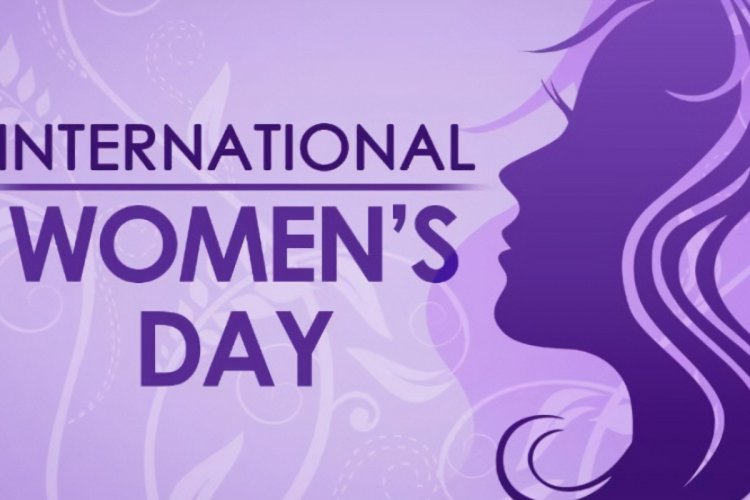Report: Gender Pay Gap in China Narrows But Women Are Still Getting Short-Changed
Statistics recently released by employment-oriented platform Zhipin reveal that on average, women in China earn 84 percent of what their male counterparts make. Optimistically, those figures have narrowed by 7 percent compared to 2016's 77 percent, though the remaining gap nevertheless proves that there remains a long way to go to achieving pay equality for female workers.
In comparison, last year the median salary for women in America was roughly 78 percent than that for men, according to payscale.com.
According to the Zhipin report, the major factors fueling the pay gap are differences in occupation, industry, and number of years of work experience between men and women. Additionally, those working in insurance, publishing, and education have the smallest pay disparity.
The salary difference between men and women with less than one year of work experience is 8.5 percent. However, that divide increases to 15 percent for employees with over five years of work experience. This disparity is attributed to women being likely to get married and have children within these first five years, requiring them to take maternity leave and be more "family-focussed." It may also be that men are more likely to move into higher level roles than women, and therefore enjoy better pay.
China's two-child policy has also had a major impact on career development among women given that the additional time that may be needed to raise a second child has caused companies to potentially think twice when recruiting women of childbearing age.
Aside from those predictable workplace gender biases, levels of education also play an increasingly important role in how much women are paid compared to their men. Among those who hold diplomas from technical schools, the gender pay gap is a whopping 26.5 percent. The gap lowers to 18 percent for those with master's degrees, and it drops further, to 14 percent, for those with PhDs.
Another interesting tidbit: the gender salary gap in first-tier cities is smaller than that of in second- and third-tier cities. Women working in Beijing, Shanghai, and Shenzhen earn an average of 20 percent less than their male peers, but that figure jumps to 31 percent in second- and third-tier cities.
Though the gender pay gap persists, there have been some positive changes. For example, the number of women working in the technology industry increased to 45 percent in 2018 and continues to grow. This forecasts a boon for income among women since the technology industry pays better than more traditional sectors, where the female workforce has fallen to 35 percent from 38 percent in the year prior.
In a show of usual male arrogance, a number of triggered and very manly netizens defended the status quo, commenting, "most of the men’s salary go to their wives or girlfriends anyway."
It seems that there is indeed still a long way to go when it comes to women's equality in the workplace.
READ: Meet the Great Chinese Women Your History Teacher Forgot to Mention
More stories by this author here.
Email: kuang@thebeijinger.com
Instagram:beijinglights_
Image: verdict.co.uk
Related stories :
Comments
New comments are displayed first.Comments
![]() Max Renn
Submitted by Guest on Sun, 03/10/2019 - 16:10 Permalink
Max Renn
Submitted by Guest on Sun, 03/10/2019 - 16:10 Permalink
Re: Report: Gender Pay Gap in China Narrows But Women Are...
I think the study compares people of different genders im the same role (lawyer vs lawyer, laborer vs laborer)
regardless, I still find the most surprising takeaway is that US women earn less as a % of men’s wages than PRC women. I would have assumed the opposite
No, your article explains it's because men and women choose different occupations, work in differnt industries, and generally have a different amount of experience (usually due to women leaving the workforce to have kids).
It says it right here:
"According to the Zhipin report, the major factors fueling the pay gap are differences in occupation, industry, and number of years of work experience between men and women."
And here:
"The salary difference between men and women... increases to 15 percent for employees with over five years of work experience. This disparity is attributed to women being likely to get married and have children within these first five years, requiring them to take maternity leave and be more "family-focussed.""
I don't understand this need people have to belive women are victims here.
If you want to earn good money, choose subjects like science, computing, engineering, accounting, business, etc.
If you want to earn poor money, choose subjects like education, child care, English, psychology, etc.
![]() admin
Submitted by Guest on Sun, 03/10/2019 - 07:05 Permalink
admin
Submitted by Guest on Sun, 03/10/2019 - 07:05 Permalink
Re: Report: Gender Pay Gap in China Narrows But Women Are...
The wage gap has been debunked a million times. The reason women, on average, earn less than men is because they choose different professions and work fewer hours. When like for like jobs are compared, the salary difference is virtually zero.
I think the reason there is less of a wage gap in China (vs USA) is because Chinese women are willing to do almost any job. I often see Chinese women doing construction work, or labouring. They're also willing to work long hours.
I think the study compares people of different genders im the same role (lawyer vs lawyer, laborer vs laborer)
regardless, I still find the most surprising takeaway is that US women earn less as a % of men’s wages than PRC women. I would have assumed the opposite
![]() Max Renn
Submitted by Guest on Sun, 03/10/2019 - 01:25 Permalink
Max Renn
Submitted by Guest on Sun, 03/10/2019 - 01:25 Permalink
Re: Report: Gender Pay Gap in China Narrows But Women Are...
The wage gap has been debunked a million times. The reason women, on average, earn less than men is because they choose different professions and work fewer hours. When like for like jobs are compared, the salary difference is virtually zero.
I think the reason there is less of a wage gap in China (vs USA) is because Chinese women are willing to do almost any job. I often see Chinese women doing construction work, or labouring. They're also willing to work long hours.
![]() WaqarOptimist
Submitted by Guest on Sat, 03/09/2019 - 19:25 Permalink
WaqarOptimist
Submitted by Guest on Sat, 03/09/2019 - 19:25 Permalink
Re: Report: Gender Pay Gap in China Narrows But Women Are...
I think comparison won't be like male engineer and female teacher.. It would be category and job description wise. For example, how much male teacher is earning a year vs a female teacher.. Or if the occupation is Engineering then male engineer vs female engineer..
So in that case, China presents relatively healthier picture of gender equality than America!
![]() admin
Submitted by Guest on Sat, 03/09/2019 - 17:20 Permalink
admin
Submitted by Guest on Sat, 03/09/2019 - 17:20 Permalink
Re: Report: Gender Pay Gap in China Narrows But Women Are...
It is however interesting to note that women in China make 84% of a man’s salary vs 77% for their counterparts in the US
![]() Max Renn
Submitted by Guest on Sat, 03/09/2019 - 15:59 Permalink
Max Renn
Submitted by Guest on Sat, 03/09/2019 - 15:59 Permalink
Re: Report: Gender Pay Gap in China Narrows But Women Are...
This is an incredibly stupid article. You even post the reason for the pay gap:
"the major factors fueling the pay gap are differences in occupation, industry, and number of years of work experience between men and women."
Obviously if a woman chooses to work as a teacher, and a man chooses to work as an engineer, the man will make more money. Add in years of work experience and the man's salary will be even higher.
It's not the man's fault he chose a higher paying job, in a better industry, and has more work experience.
Validate your mobile phone number to post comments.







